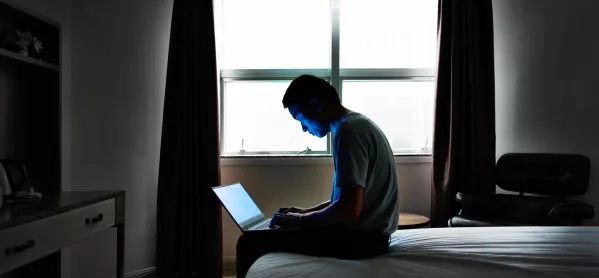Catch-up funding to support young people who have lost learning through Covid disruption should be allocated on the basis of measures of deprivation to ensure that the resources are targeted effectively, the Association of Colleges has said.
Responding to a report by the Education Policy Institute (EPI) think tank on catch-up approaches across the UK, AoC chief executive David Hughes said it shone a light on the impact of young people’s lost learning over the past 12 months, the threat this posed in widening existing inequalities and the need for an increase in funding to respond.
“The report focuses mostly on schools, but the issues are the same for students continuing their education into college this September, who will need additional support through the transition and beyond to ensure that they are ready to embark on the next stage of their education,” said Mr Hughes.
More on the report: Covid catch-up cash ‘very modest’ and ‘poorly targeted’
Lost learning: Catch-up tsar asked to set up lost learning task group
Viewpoint: What is the purpose of extra ‘learning time’?
“The AoC is suggesting that catch-up funding should be allocated on the basis of measures of deprivation to ensure that the resources are targeted effectively. Centrally planned initiatives such as the National Tutoring Programme for school-aged children don’t work so well for many post-16 students, who need specialist learning to support their progression into employment or further study,” he added.
Coronavirus: Colleges ‘need flexibility in catch-up support’
“A range of provision, including access to practical learning settings, catch-up and support for personal development and wellbeing, will be required. Colleges should have the flexibility to decide who needs support, what they need and how best to provide it because the disruption will have affected different students in varying ways.”
Mr Hughes explained that young people faced huge new challenges as they prepared for employment or higher education, and those planning on finding jobs this summer would face a cut-throat labour market with intense competition as unemployment rises.
“Lost learning will not have helped young people be ready or confident for that, and it may have impeded their competency, making them less attractive to prospective employers. More work needs to be started now to reduce that impact.”
Today’s EPI report concludes that the Westminster government’s Covid catch-up plans are “very modest” and “poorly targeted”. Despite pledging the second most generous funding package of the four UK nations, England’s plans to recover lost learning in the wake of the pandemic “seem modest compared with the scale of the challenge”, EPI says.
The funding is also “poorly targeted”, the report’s author said, with just 30 per cent of England’s catch-up cash earmarked for the poorest pupils.
Earlier this month, the AoC called on newly appointed education recovery commissioner Sir Kevan Collins, proposing a recovery task group to support learners unable to progress into higher learning.
